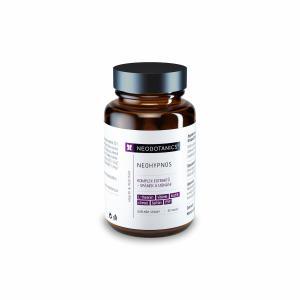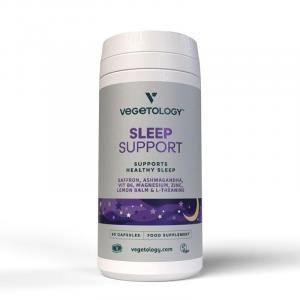
Biohacker as a Way to Optimize Body and Mind Daily

Who is a biohacker and why are we hearing about them more often today?
In recent years, the term biohacking has been appearing more frequently. For some, it is a futuristic discipline standing at the edge of science and sci-fi, for others, it is a daily practice on the path to a healthier, more efficient, and longer life. But what does it actually mean to be a biohacker? And how did this philosophy move from laboratories to common households and the pages of popular magazines?
Biohacking - the art of optimizing body and mind
The term "biohacking" originated in the USA at the beginning of the 21st century and was initially associated primarily with a community of enthusiasts trying to enhance their biological functions using technology—from tracking data about their bodies through mini-implants to genetic manipulation. Today, however, biohacking has become a much broader concept.
The modern biohacker puts away the syringe and instead picks up kombucha, blue light, or meditation. Although the effort to optimize the body remains, the approach is often much more natural. Thus, biohacking combines scientific knowledge with traditional practices supporting vitality, such as intermittent fasting, cold exposure, quality sleep, or breathwork.
At its core, it is about trying to take control of one's own health—not just passively waiting to see what the body will do, but actively exploring how food, environment, movement, or mental well-being affect it.
What does it mean to be a biohacker?
Although it sounds a bit like a profession from the future, being a biohacker doesn't necessarily mean owning a laboratory or having a PhD in biology. On the contrary—most "biohackers" are ordinary people who ask the simple question: How can I live better, healthier, and more efficiently?
Often, these are people who have struggled with chronic stress, fatigue, or health problems that conventional medicine hasn't solved. This leads to a search for new ways, whether through nutrition, natural supplements, or brain-enhancing techniques. In some cases, they are athletes, entrepreneurs, parents on parental leave, or simply people who want more out of life.
A biohacker, therefore, is not someone who "hacks" biology like a computer hacker hacks a system. It is someone who has decided to consciously adjust their daily habits to improve health, increase energy, and support cognitive performance.
Areas where biohacking resonates the most
Biohacking is not a one-way street. For everyone, it might mean something different depending on which areas of life they want to improve. However, there are several fundamental pillars that form the backbone of most biohacking approaches:
- Nutrition: Biohackers often deal with how different foods affect their energy, mood, or sleep. Popular options include the ketogenic diet, fasting, or testing for food intolerances.
- Sleep: Optimizing sleep is one of the most common biohacking goals. This includes tracking sleep quality with smart devices, using blue light-blocking glasses, or maximizing bedroom adjustments.
- Movement and recovery: A biohacker seeks the ideal balance between physical activity and rest. Popular practices include HIIT, cold exposure, and breathing exercises like the Wim Hof Method.
- Mental performance: Improving focus, creativity, or stress resilience is among the key motivations. Practices like meditation, neurofeedback, or adaptogens are common parts of the daily routine.
- Supplements: Biohackers often reach for nootropics and other substances that support the brain, immunity, or hormonal balance—favoring natural and proven products.
Try our natural products
Biohacking in practice - a real-life example
Let's imagine Jana, a forty-year-old manager who began struggling with fatigue, insomnia, and mood swings after the birth of her second child. When medical tests did not reveal any clear cause, she started looking for ways to improve her health on her own.
She began by keeping a daily journal, recording what she ate, how she slept, when she exercised, and how she felt. She soon noticed that certain foods made her feel tired. She eliminated refined sugar from her diet, added healthy fats, and began taking regular short walks in the sunlight.
She also started using a smart ring to monitor sleep quality. Based on the data, she discovered that even a small amount of alcohol in the evening significantly reduced her deep sleep. Limiting it improved her energy levels. She also added an evening ritual with lemon balm tea and reading books instead of scrolling through social media.
Today, she might not call herself a biohacker, but that's exactly what she is—someone who consciously monitors and adjusts her environment and habits to improve her health. Without extreme interventions, without technical gadgets. Just with patience, curiosity, and a willingness to listen to her body.
Controversies and boundaries of biohacking
Given the wide range of practices associated with biohacking, controversies also arise. Some enthusiasts approach biohacking extremely—experimenting with genetic modifications, implants, or non-menstrual hormones. However, these cases form a minority and often raise legitimate questions about ethics and safety.
It is important to distinguish between what is scientifically supported and what is merely a marketing trick. Scientific studies show, for example, the strong impact of cold exposure on the immune system or the positive effects of intermittent fasting on metabolism. On the other hand, some dietary supplements or devices promise miracles without real evidence.
As the well-known American biohacker Dave Asprey says: “It's not about living forever. It's about living as well as possible."
Biohacking as a path to a sustainable lifestyle
It might be surprising that biohacking has much in common with sustainability and a healthy lifestyle—areas also focused on by Ferwer. Many biohackers emphasize food quality, support for local sources, minimalism in cosmetics, or limiting chemicals in the household.
Here, biohacking meets the philosophy of slow life—a life that is slower, more conscious, and more in harmony with nature. A biohacker does not want to "overclock" the body but to learn to communicate better with it. And therein lies its strength—not in extremes, but in everyday self-care.
So the next time someone asks: "Biohacker—what is that?", you might remember your own morning routine, moments of silence, or the decision to have a glass of clean water instead of an energy drink. Because maybe—without even knowing it—you are on the path to becoming a biohacker too.



